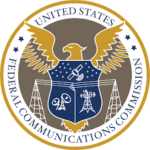
Legitimate Lead Gen Practices Still Rule as New FCC Rules Target Persistent Robocalls and Robotexts

The Federal Communications Commission (FCC) made their highly anticipated move to adopt proposed rules aimed at bolstering consumer protections from unwanted robocalls and robotexts. [see excerpts from their press release below].
Some of the abusive practices the FCC is targeting include “bad actors” sending illegal pre-recorded calls and text messages to consumers, and the unrestrained sharing of consumer consent from comparison shopping websites with no limitations.
This means changes for the lead gen industry. Change can be daunting. But let’s take a deep breath.
The name of the game is to practice vigilance to review and adjust your tactics in relation to changing regulations. We want to deflate the panic, and encourage the adoption of positive solutions.
The intent of the regulations is to stop abusive activities and give consumers the protections and choice they want. The abusers kind of ruin it for compliant minded businesses that are looking for people truly interested in learning more about their business offerings. That’s a heightened challenge in an environment where consumers are already defensive, skeptical, and frankly, a little scared.
Companies with sales and lead generation teams need to be savvy about partnering with solutions providers that have a solid, proactive compliance program. The providers should be conducting a “Know Your Customer” (KYC) survey to help make sure your operations are set up for success in terms of alignment with TCPA, state, and other regulatory concerns.
“This new ruling is a reminder that we should continue to conduct business in a compliant manner, pivot when and how necessary, and keep using the best practices that drive success,” noted Convoso Compliance Officer Tammy Glover Fowler.
So c’mon folks. We’re a nimble industry. There are already remedies on the table to accommodate the new rules. An upside is that the quality of leads will improve by getting more specific, consent-driven, and hungry to do business.
RELATED CONTENT: TCPA & Call Center Compliance Trends for 2024: Complexity Grows with State mini-TCPAs, Privacy Laws, and FCC Ruling
From the FCC Dec 13 2023 press release:
Combatting robotext sources
The new rules allow the FCC to “red flag” certain numbers, requiring mobile carriers to block texts from those numbers. The rules also codify that Do-Not-Call list protections apply to text messaging, making it illegal for marketing texts to be sent to numbers on the registry. And the order encourages providers to make email-to-text messages an opt-in service, which would limit the effectiveness of a major source of unwanted and illegal text messages.
Closing the lead generator loophole
The new rules close a loophole through which unscrupulous robocallers and robotexters inundate consumers with unwanted and illegal robocalls and robotexts. The new rules make it unequivocally clear that comparison shopping websites and lead generators must obtain consumer consent to receive robocalls and robotexts one seller at a time – rather than have a single consent apply to multiple telemarketers at once.
Groundwork for future steps
In addition to the rules, the Commission also proposed and will take public comment on additional steps it might take against robotexts. This notice proposes additional blocking requirements when the FCC notifies a provider of a likely scam text-generating number. The Commission will also seek further comment on text message authentication – modeled on the successful implementation of STIR/SHAKEN protocols for phone calls – including on the status of any industry standards in development. The notice also proposes requiring, rather than simply encouraging, providers to make email-to-text services opt-in.
Get a recap of the latest contact center compliance news delivered monthly to your inbox. Subscribe here >
DISCLAIMER: The information on this page and related links is provided for general education purposes only and is not legal advice. Convoso does not guarantee the accuracy or appropriateness of this information to your situation. You are solely responsible for using Convoso’s services in a legally compliant way and should consult your legal counsel for compliance advice. Any quotes are solely the views of the quoted person and do not necessarily reflect the views or opinions of Convoso.
Schedule a demo
Supercharge your sales with our AI-powered contact center platform.
